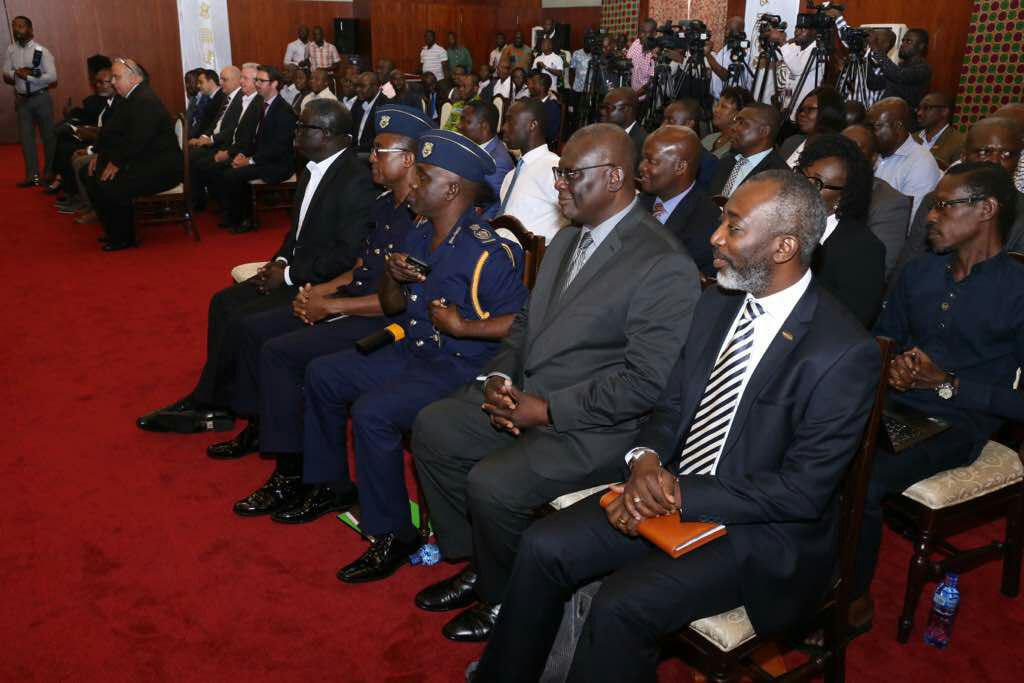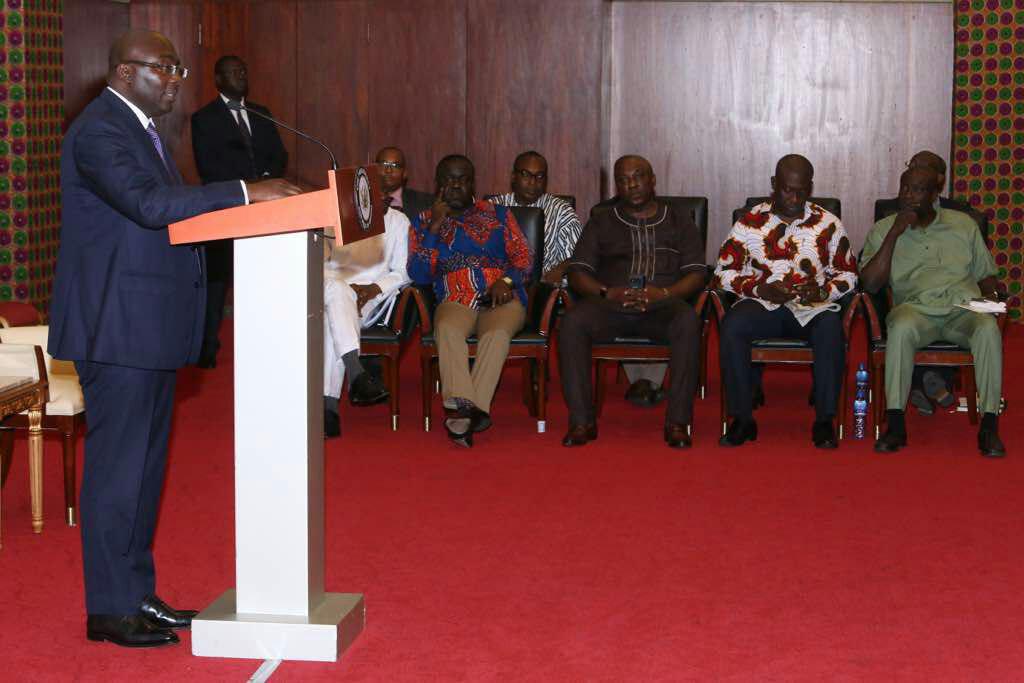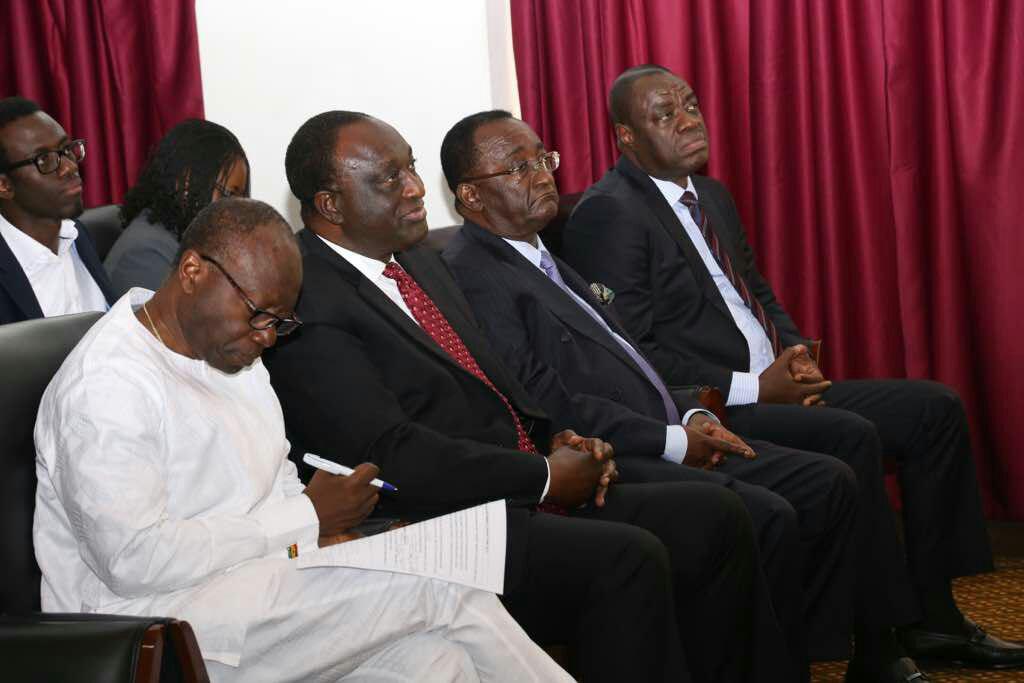.jpg)
Four hour clearance at ports on course – Bawumia
Ghana is working to roll out a robust system within the next six months so that customs clearance can be granted to importers in four hours, the Vice-President, Alhaji Dr Mahamudu Bawumia, has said.
Advertisement
He stated also that plans were far advanced for the removal of customs barriers in the country and ensure mandatory joint inspections and a paperless port system, with effect from September 1, 2017.
Making reference to Dubai Customs that was able to grant customs clearance in one-and-a-half seconds, Dr Bawumia said Ghana could definitely aim at granting customs clearance in four hours.

Update
The Vice-President was providing an update on the efforts being made by the government to ensure and enhance greater transparency at the country’s ports at the Flagstaff House yesterday.
“In the short term, we will begin the implementation of a risk clearance system at the pre-arrival stage. This will make it possible for compliant importers to sit in the comfort of their offices and get customs clearance. Every activity will be fed into the risk engine to enable us to keep a record of importers,” he said.
He said the country’s port operations had not lived up to international standards and that the Nana Akufo-Addo-led government was determined to change that.
“From the government, as the owner of the port, to users of the port — shipping lines, exporters, importers, terminal operators — we are dissatisfied because of the overall procedures, inexplicable charges, delays, lack of transparency and the complexity in port operations,” he said.
Part of the problem, Dr Bawumia said, had been inadequate oversight by the port owner, the government of Ghana.
“This is going to change. We are moving from a system of applying sub-standard and unnecessary complex procedures at the port to a system which meets international standards. We need value for money as a nation and we are going to insist on it,” he added.
Dr Bawumia said the government had been working closely with stakeholders, with the aim of automating and streamlining the services they provided, while avoiding duplication of efforts in the medium term.
Following consultations with stakeholders, he said, it had been agreed that the only papers that should be allowed at the ports were waybills and bills of lading “and so we have made an exception for only these two”.

First port rule
In furtherance of the government’s agenda to modernise port operations, he said, the plan was to introduce the First Port Rule in Ghana, which would provide the avenue for the duty on goods destined for countries such as Burkina Faso, Mali and Niger to be paid here in Ghana.
“This should provide a check on the dumping of goods destined for our neighbouring countries in Ghana,” he added.
He said the government would also push for the introduction of intelligent three dimensional (3D) scanners as an improvement over the two dimensional (2D) scanners currently being used at the port.
“To achieve our short and medium-term goals of port efficiency, we sought the opinions of independent third parties with international experience to conduct a gap analysis and recommend solutions.
“Dubai Customs is collaborating with Ghana Customs to conduct a gap analysis with the aim of raising our customs service delivery to a world-class one. Ghana Ports will collaborate with Dubai Ports on a government-to-government level to improve services in our ports,” the Vice-President explained.
He, therefore, called for the cooperation of all stakeholders to ensure port efficiency, saying they must all aim to do their part to make the port paperless and that no excuses would be tolerated.
“Agencies or service providers who are not ready to go paperless by September 1 will not be allocated any cargo,” he warned.

Removal of impediments
On the removal of internal customs barriers, he said those barriers would be redundant in the long term with the introduction of the first port rule in Ghana.
Duties, he said, would be paid on goods destined for re-export and with the new automated gate opening system at the port, which would be linked to the risk engine, no vehicle would be able to leave the port without paying duty.
On Mandatory Joint Inspections, he said from September 1, this year, there would not be physical opening and inspection of all containers.
“We are introducing a risk engine which will assign risk levels to importers based on their level of compliance. When the need arises for inspections, the agencies needed for the inspections will be informed about the time and place for joint inspections and they will have to sign in on an electronic device at the inspection shed to confirm their participation,” he said.
“Terminals which are not ready for automation by September 1 will be left behind and people who do not comply will be sanctioned. Every activity by importers will be fed into the risk engine as we build risk profiles for importers and exporters,” Dr Bawumia said.



